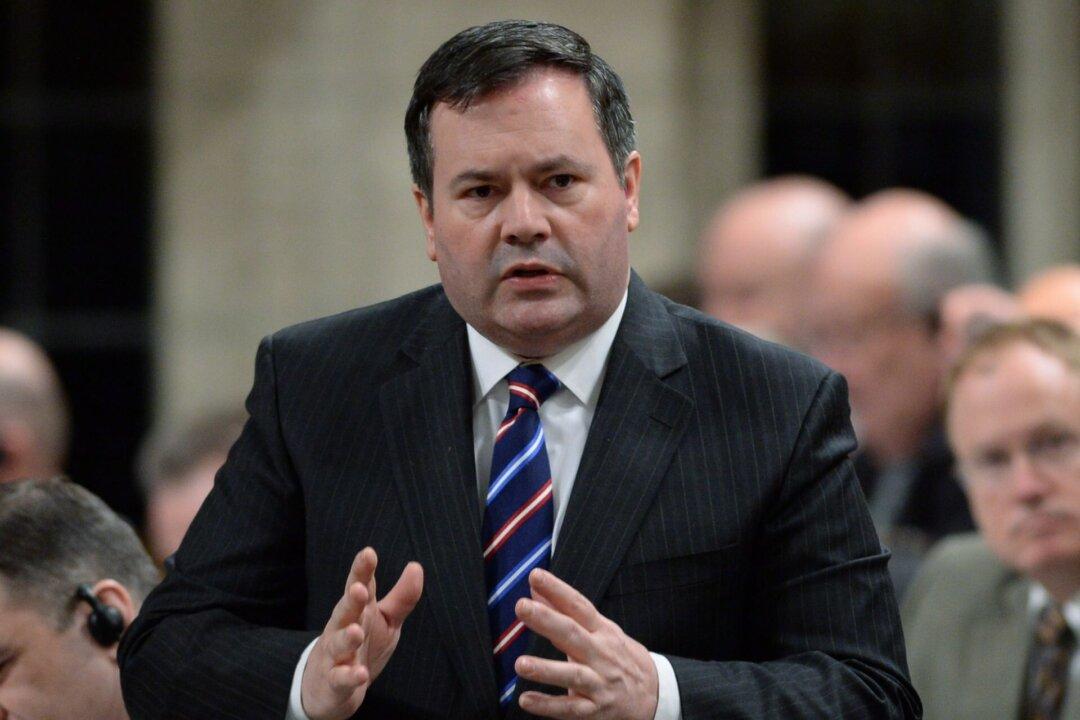OTTAWA—There’s a fine line between legitimate religious expression and inciting terrorism, says Conservative cabinet minister Jason Kenney.
It’s that line the government will be walking—carefully—in its new anti-terrorism bill, expected to be unveiled Friday, Jan. 30.
The bill is the government’s long-awaited legislative response to two attacks carried out on Canadian soldiers last fall by men believed to have been influenced by radical Islam—attacks the government considers acts of terrorism.
Though police already have the power to go after those suspecting of being on the verge of committing terrorist attacks, the new bill is partially aimed at stopping the seeds of those attacks from germinating altogether.
“Our objective is not to diminish legitimate expression of political or religious views, but rather incitement to terrorism—and there is a fine line there that the legislation will try to draw,” Kenney said in an interview Tuesday, Jan. 27.
“Obviously there are some malevolent religious influences that can add to the process of radicalization towards violent extremism, and we have to be extremely mindful of that.”
How to effectively combat radicalization is a struggle facing governments and security agencies the world over.
The RCMP is currently rolling out its own strategy, which includes working more closely with community groups in order to identify and divert people who may be susceptible to extreme views that could eventually lead to violence.
But the police need broader powers to deal with those doing the radicalizing, suggested Conservative MP Tim Uppal, who is also the minister of state for multiculturalism.
“If the police are doing their investigation and they come across people who are trying to radicalize others, before any type of violence ... I think that’s somewhere where we do need some action,” Uppal told The Canadian Press recently.
The other problem facing legislators is how to handle radicalization online, which many acknowledge is the primary source of information for young men and women who later end up joining violent causes.
“We need to be able to follow up on and see how we can ensure that we are able to either stop those messages that people are getting, or at least be able to follow up on it in some way,” Uppal said.
But Liberal public safety critic Wayne Easter said he wonders why existing anti-terror laws of various kinds haven’t been put to full use.
“The government has not given us any answer,” said Easter, who is calling on the RCMP to release the video Michael Zehaf Bibeau made before he killed Cpl. Nathan Cirillo at the National War Memorial.
RCMP commissioner Bob Paulson has said Zehaf Bibeau appeared “lucid” and “purposeful” in spelling out his motives, which Paulson described as being rooted in his religious beliefs and opinion of Canada’s foreign policy.
Paulson initially said he wanted to see the footage released to the public, but has since signalled that may not happen.
Easter said he'd like to know if the message on the video lines up with what federal officials have said about it.
“Maybe it doesn’t match with the prime minister’s messaging,” he said. “Now that would be a sad commentary if the commissioner of the RCMP is being led down that path. But we'll see.”





